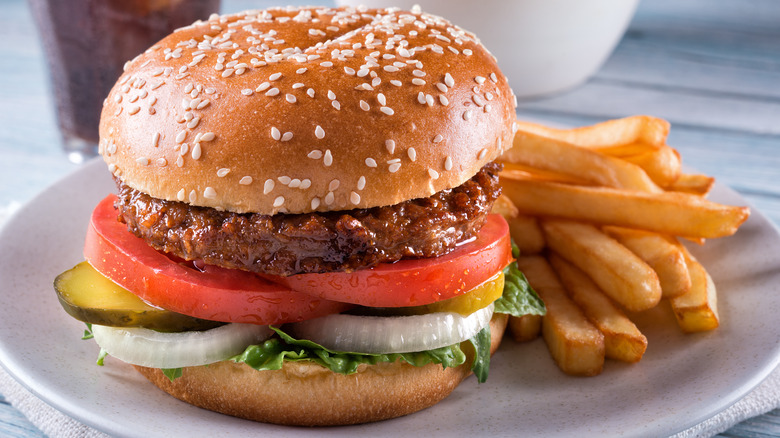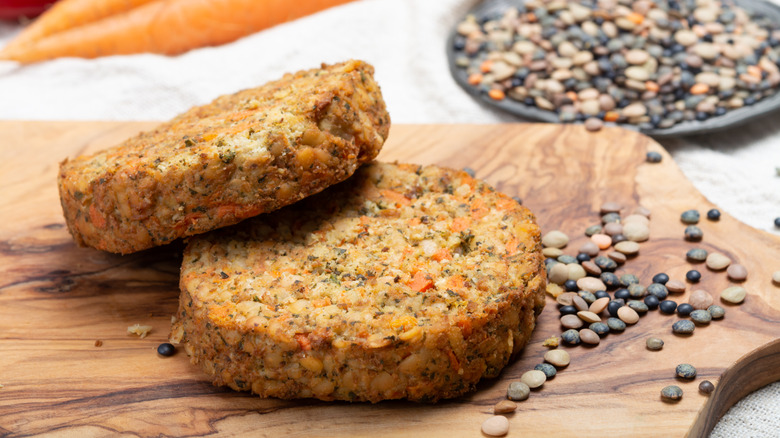What's Really In Plant-Based Meat?
You've probably heard of plant-based meat as a healthy alternative to eating the real thing. From burgers, to bacon, to chicken patties, there are plenty of meat substitutes, but have you ever wondered what is actually in them?
Perhaps one of the most important ingredients in plant-based meats is protein. Manufacturers use many sources for protein including soy, peas, rice, lentils, quinoa, and beans. Registered dietitian and vegan nutrition coach Rhyan Geiger, explained how the popular brands, Beyond Meat and Impossible Foods, contain pea protein and soy protein because those ingredients look, feel, and taste more like meat (via Insider).
In addition, most meat alternatives contain oils such as canola, sunflower, or coconut. An emulsifier, like methylcellulose, holds the ingredients together and acts like a thickener. Many meat substitutes are fortified with vitamins and minerals to boost their nutritional value (via Food Insight). Some brands may also include seitan or wheat gluten, and of course, a variety of spices add flavor.
Are plant-based meats better than real meat?
Geiger told Insider that plant-based meats are a healthier option overall. Registered dietitian Supriya Lal, agreed, adding that plant-based meats also have lower amounts of saturated fats. High consumption of red meat is linked to heart disease. Not only that, but red meat also contains fat and cholesterol, and high levels of cholesterol can lead to stroke (via Centers for Disease Control and Prevention). A 2020 study found that a diet of moderate amounts of plant-based meats improved heart disease risk factors over the course of six weeks.
That being said, meat substitutes have their own problems. Many contain high amounts of sodium, which can lead to high blood pressure and stroke, Lal states. In addition, plant-based meat is highly processed, and should only be consumed a couple of times a week. They also contain other additives such as sugar and hydrogenated oils (via Science Direct).
If you want to add more plant-based protein to your diet, experts suggest consuming whole foods such as lentils, quinoa, beans, and chickpeas.


